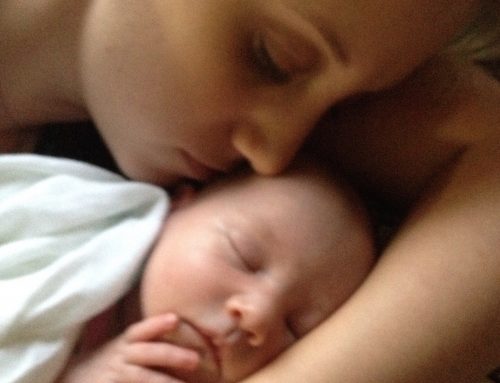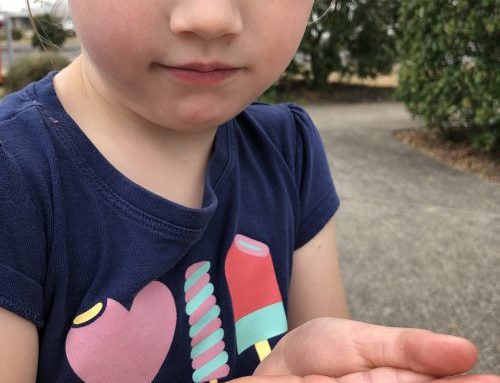II had an interesting conversation with a friend a few days ago.
He sighed “We are having such trouble getting our little girl into childcare – there are so few places available. We are feeling so stressed and guilty that she might not get the early education and sociability that she needs?”
Time for a reality check.
- Humans are amongst the most social species on the planet. We have been honed by countless generations of ancestors who selected themselves to reproduce by their ability to socialise. It doesn’t need to be trained into us. It’s inherent.
- In our first couple of years we need to learn security and confidence with our parents (especially mother) and loved ones. We learn love from the people around us who love and interact with us. Strangers don’t count.
- This ‘emotional intelligence’ is the bedrock of our personality and underpins our ability to learn. It’s how we learn how to learn.
- Cognitive functions like learning colours, numbers and how to label objects are of secondary importance.
- Children do not play with each other or benefit from their company until three years old. Until then, they steal each other’s toys and walk on each other. Other kids are just objects.
So childcare is not a necessity and it’s certainly not advantageous, unless the home is bereft of stimulation and devoid of love.
If childcare is needed to allow the mother to work, it’s fine (but choose the best you can, with the best child/carer ratio). But let’s not pretend that it’s recommended to make a better child.










This is a timely and interesting post, and no doubt one that many people will find useful. I have personally worried that my decision to keep my kid out of childcare will impact him emotionally and developmentally, and I am pleased to hear that this is not the case.
However, but please consider the greater implications of what it means when you say “mother” instead of “parent”. The greatest burden of parenting still falls to mothers, and there is a large body of literature documenting how this has a massive impact on their career and earning capacity across their lifetimes.
As far as I’m aware, there’s no credible research that says that a mother’s care is superior to a father’s care (or, for that matter, the care of any loving and consistent caregiver). These kinds of stereotypes work to prevent a more equal share of the responsibilities and joys of parenting (and the joys of and responsibilities of paid workforce participation).
It is a great source of frustration for my husband when people congratulate him for “helping” with the kids just because he’s doing his fair share of raising his own offspring. While we’ve been lucky to have work flexible enough to share our child care responsibilities, child care for us would allow BOTH of us to work, not just me.
I really love your work and advice, I frequently recommend your writing to other people. But using tired stereotypes about gender roles (and putting the guilt of a sub-optimal child care decision solely on the shoulders of the female parent) falls well below your normally great advice.
Thanks for your reply. Have a read of the reference to Jackie’s question below for some answers to your remarks!
This is ridiculous. Why try to make parents feel guilty about what may be a necessity for them? I personally did not have to work as we had enough money to live on without the extra my wages brought us, but putting my children in childcare while I went back to work (1) gave me a career, (2) made sure that I kept on putting money into my superannuation, which is on average less for women than for men in Australia, and (3) most importantly, kept me sane. The breaks from constantly having to clean up messes and amuse my children made me a much better parent.
No, childcare isn’t necessary. But historically humans have shared the care of their young, and anthropological evidence shows that children brought up by more people than their parents do better in later life.
I have no wish to make anyone feel guilty about their choices. Merely that they make the choice for the right reasons and with the right information.
I have not said that you should not choose childcare if that is what you or your family needs. What I have said is do not choose it solely because you think that it will give your children extra benefits over staying close to you during their first 3 years unless that is the case in your family.
There is a large body of evidence (reference below for a good summary – download for free) that suggests that this is not the case.
http://www.pc.gov.au/inquiries/completed/parental-support/submissions/subdr349-attachment.pdf
Thank you for this Dr Chilton. As a stay at home mum I often question whether or not my child is missing out on enriching and stimulating activities by not going to day care. I have tried going to the link you posted above but it seemed to have been outdated. Would you be able to re-post it? Thanks in advance.
Hmm, the link was broken. Try this: http://www.babydoc.com.au/a-conversation-about-childcare
THANK YOU.
I’m a 40 year old Stay at Home mum of three (aged 20 years, 19 years and 15 months).
We don’t go to baby groups now and we didn’t two decades ago.
I was recently told that I am too attached to my baby son, and that he was ‘missing out’, as we don’t go to baby groups – they are of no benefit and more over they clash with nap time (which definitely does have).
I’m posting this article everywhere I can 🙂
Hi Howard,
Whilst I agree with a lot of what you’re saying as I’m a firm advocate for attachment parenting, I do believe you’re missing a point here.
For thousands of years across the globe, women have raised their children together, not individually. You only have to look at non-western cultures today to see this still happening. Infants and toddlers grow up round each other, and although play at a young age is usually parallel play, there is also a lot of mimicking from 12 months plus.
The environments in which we raise our children as stay at home parents today are not conducive to the social psyche of humans. Surely there is an argument for the role of high quality daycare to play a part in replacing those qualities of ‘the village raising the child’?
I say this not just for the wellbeing of the child but also for the main caregiver, as this false environment of child-rearing that we have created in the modern world is sometimes to the detriment of the parent’s mental health which, in turn, effects the wellbeing of the child.
Innovative, high quality daycare can foster a sense of community, decrease a sense of isolation and offer our children different, rick experiences to the ones we can offer at home. The key is the quality and ethos of the provision, not the very existence of it.
Alison, I don’t disagree with anything you say. But regarding your 1000s of years …., my essential point is that the issue is the total separation from the mother or main carer from the young baby should only occur if other options are unavailable – for whatever reason. I’m not recommending the isolation of mothers in the home.
I agree with Ellen. Your point that people shouldn’t feel guilty for NOT putting their children in childcare is valid and appropriate, and if you restricted yourself to just saying that (as three of your points do), it would be fine.
But you also slipped in this corker: “In our first couple of years we need to learn security and confidence with our parents (especially mother) and loved ones. We learn love from the people around us who love and interact with us. Strangers don’t count.” Even putting aside the problematic gender essentialism and the idea that regular carers are ‘strangers’, I don’t believe you are naive enough to think that this wouldn’t be read as a slight against mothers who work (some by necessity, some by choice). And one, by the way, that we get all the damn time.
With this statement, you turn what could have been a neutral vision of the benefits of SAHPing vs daycare into an implicit endorsement of SAH mothering as the true ideal. And I can’t get on board with that.
Hi Alana, Good points.
If babies have a small number of loving, unchanging carers in daycare who have the time to interact with them I have no problem with that situation. If the carers have too many babies to look after, spend most of the day with bottles and nappies and have no time for loving interaction (which is THE essential for optimal emotional development), and tend not to stay in the job for long enough to become familiar to the baby, it makes the situation sup-optimal for the baby.
It is also our society’s fault that mothers are not offered long parental leave and that they are seriously disadvantaged if they spend too long away from their career.
I’ve always been really impressed with your talks, your aticles and we have your book which has been very useful. However, when i read this article it frustrated me slightly. My partner and i have recently put my son (15months) into a fabulous childcare and since he has been there he has not only increased his vocabulary but his social skills around adults and children have improved. He learns and experiences things there that my partner and i may not be able to teach him because of our work schedule. I’m not saying this will be the case for everyone and I’m not a doctor or expert but in our case I certainly can’t agree with the particular comment below.
“Children do not play with each other or benefit from their company until three years old. Until then, they steal each other’s toys and walk on each other. Other kids are just objects.”
Your situation is right for you and your family. Your boy clearly has excellent carers and is in a supportive environment. However children on average tend to ‘parallel play’ rather then ‘play with’ other children at your son’s age.
Over the last few years, child care has become big business. This has introduced the concept of marketing.
These businesses have now figured out that promoting ‘early learning’ makes those that don’t enrol feel a sense of guilt, and those that do enrol feel a sense of satisfaction. I note that I can’t find child care centres in our neighbourhood any more, they’ve rebranded as ‘early learning / education / university’. Some brag about the curriculum for children as young as 6 months.
This is very good for business.
The body of knowledge suggests that early education benefits for very young children are negligible or non-existent. This makes this marketing ploy similar to the Nutri-bullet claims about pre-digesting food for you.
Totally agree!